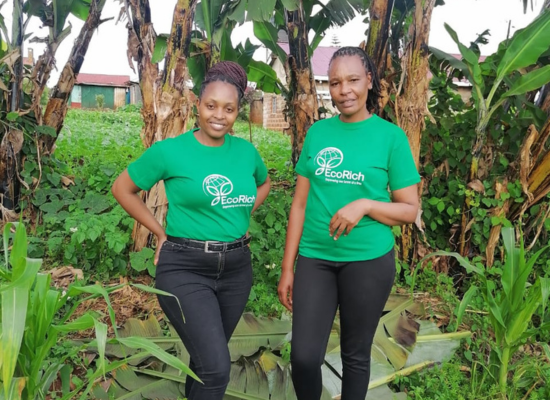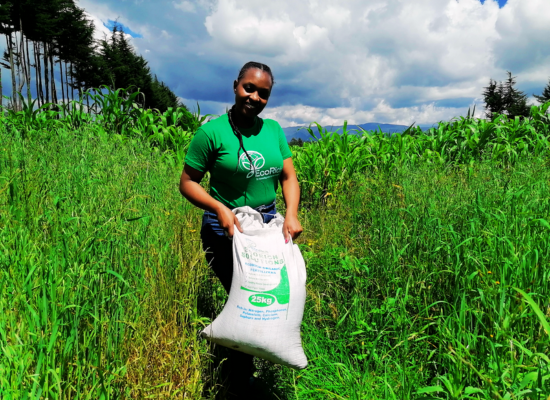Ecorich Solutions
African start-up Ecorich Solutions uses an innovative technology called “the Wastebot decomposer machine” to convert organic waste into organic fertilizer. The process involves the breakdown of organic waste using soil based microbial enzymes under a temperature regulated mechanism. Their goal is to minimise the environmental pollution caused by greenhouse gas emissions resulting from the decomposition of waste in landfill sites, and to support local farmers and women in the informal waste management sector. For these reasons, Ecorich Solutions has been chosen as one of the ISC3 Innovation Challenge 2023 finalists, and is featured as the ISC3 Start-up of the Month for March 2024.
Year of Foundation:
2020
Addresses the following SDGs:
SDG1 (No poverty) SDG 2 (zero hunger), SDG 12 (responsible consumption and production), SDG 13 (climate action), and SDG 11 (sustainable cities and communities)
Website



